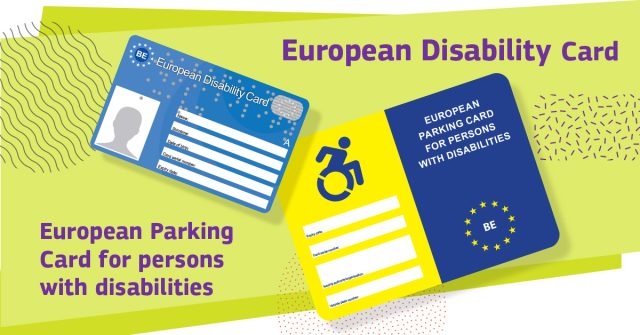
The European Parliament will start discussing a proposal coming from the European Commission to create an EU Disability Card.
Seven years ago, a project was launched in eight member States (Belgium, Cyprus, Estonia, Finland, Italy, Malta, Romania and Slovenia) in order to ascertain the potential results of such an initiative. The project lasted two years and its results were published in 2021.
However, the trial was limited to disability benefits in the sectors of culture, leisure, sport and transport. Moreover, the nature of the disability card was voluntary, meaning that national service providers in those four sectors could voluntarily adhere to the card scheme or not.
The underlying idea was that service providers were obliged to offer the same benefits they provided to nationals with disabilities also to cardholders from the other seven participating member States.
The number of cards produced were 316,000, that is, an average of slightly 40,000 users per member State. Less than 1% of the total private enterprises within the specific sectors adhered to the card, except for the cultural sector in Belgium, where the coverage reached a much higher 8.4%. The low level of participation by service providers, particularly in the transport and sport sectors, was stressed as a clear weakness after the trial.
With regards to the culture and leisure sectors, the result was not very satisfactory: Only 30% of cardholders perceived their cultural and leisure participation to have increased fairly or very much due to the card; while 70% considered their cultural participation to have increased slightly or not to have increased at all.
The situation was even less impressive with respect to sport participation. More than 60% of respondents reported their sport participation not to have increased at all, while only less than 20% thought their participation in sport activities to have increased fairly or very much as a result of the card.
Only Finland and Slovenia accepted to include public transport as a sector covered by the card; and just 35% of respondents reported a fair or large increase regarding tourism abroad, while 45% reported that they did not increase their tourism activities abroad at all by having the card.
In terms of overall satisfaction, 38% of users stated that they would definitely recommend the card to other users.
The project showed that the definitions of disability differ across the participating member States, even more so across the 27 EU member States. For instance, Finland and Romania do not consider mental impairment to integrate disability.
Hence, the number of eligible persons per member State also differed greatly. Belgium, with a population over 11 million, only had 75,000 eligible persons; whereas Estonia, with a population of scarcely over 1 million, more than doubled the number of eligible persons in Belgium.
Consulted civil society organisations agreed that the opinions of persons with disabilities was paid little attention to for the development of the card system.
Free entrance for cardholders was rather high in Romania (75%) and significant in Slovenia (40%), but marginal or non-existent in the other member States, where the dominating model was price reduction. For example, in Malta, price reduction in the culture area ranges from 25% to 49%; in Romania, reductions in the sport sector range from 50% to 74%.
There were also variations regarding price reductions offered to assistants of persons with disabilities. For instance, free entrance was provided in Cyprus, Malta and Romania; reduction above 75% was only provided in Cyprus; Finland, Malta and Romania offered some reductions ranging from 25% to 49%: and Belgium, Estonia and Finland ranged in a more frugal spectrum, from 0% to 24%.
Though it was not included in the trial project, the European Commission is now proposing to add parking services in its EU Disability Card. It is now for the Employment and Social Affairs (EMPL) committee in the European Parliament to discuss whether and how to go ahead with this initiative, together with the Council of the European Union.
Source of image: European Commission



 Subscribe
Subscribe